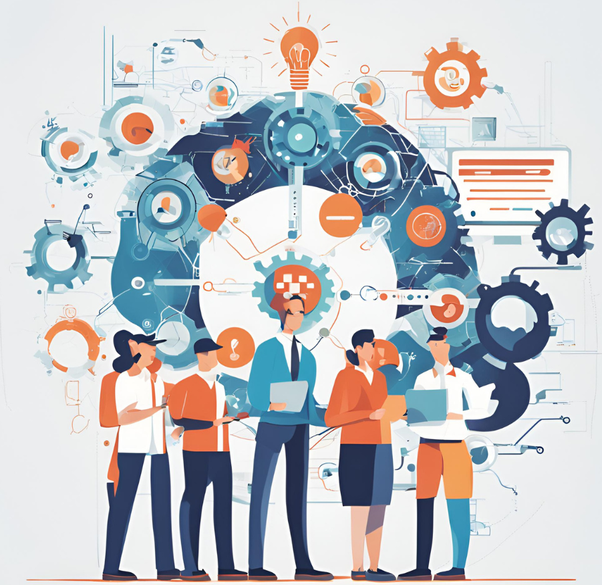The Upcoming Future
As we stand on the cusp of tomorrow, the landscape of our future unfolds before us with both anticipation and uncertainty. The rapid pace of technological advancement, coupled with evolving societal norms and global challenges, paints a canvas where innovation and adaptation are key.
Technological Frontiers
One of the most striking aspects of our future is the continued march of technology. Artificial Intelligence (AI), once confined to the realm of science fiction, now permeates every facet of our lives. From autonomous vehicles navigating our streets to AI-powered healthcare diagnostics revolutionizing medicine, the integration of AI promises to redefine how we work, live, and interact.
The advent of quantum computing holds the potential to solve complex problems at speeds unimaginable today, unlocking breakthroughs in cryptography, material science, and climate modeling. Meanwhile, biotechnology advancements, such as CRISPR gene-editing, herald a new era of personalized medicine and agricultural innovation, promising to tackle diseases and feed burgeoning populations sustainably.
Societal Transformations
Beyond technology, our societal landscape is undergoing profound shifts. The rise of social movements advocating for environmental sustainability, social justice, and inclusivity is reshaping corporate agendas and governmental policies worldwide. Concepts like universal basic income (UBI) are gaining traction as we grapple with the implications of automation on employment and economic stability.
Education, too, stands at a crossroads. The traditional model of learning is giving way to lifelong learning platforms and digital credentials, empowering individuals to adapt to a dynamic job market and acquire new skills continuously.
Global Challenges
Yet, amidst these advancements, challenges loom large. Climate change remains a pressing issue, with rising sea levels, extreme weather events, and biodiversity loss threatening ecosystems and human livelihoods. The quest for sustainable development and renewable energy sources has never been more urgent.
Furthermore, geopolitical tensions and cybersecurity threats underscore the need for global cooperation and robust governance frameworks to ensure peace and security in an interconnected world.
The Human Element
At the heart of this future lies the human element—our capacity for creativity, empathy, and resilience. As automation reshapes industries, the demand for uniquely human traits—critical thinking, emotional intelligence, and ethical reasoning—becomes ever more essential.
Cultural diversity and artistic expression continue to enrich our global tapestry, fostering dialogue and understanding across borders. In an increasingly digital world, the preservation and celebration of our cultural heritage become acts of both remembrance and innovation.
Conclusion
In contemplating the upcoming future, one thing becomes clear: it is a convergence of boundless possibilities and formidable challenges. How we navigate this landscape will define not only our progress but also our legacy. As stewards of tomorrow, we are tasked with harnessing the power of innovation while safeguarding our shared humanity and planet.
As we embark on this journey into the future, let us embrace curiosity, empathy, and collaboration as guiding principles. For it is through these virtues that we will shape a future that is inclusive, sustainable, and brimming with promise for generations to come.

